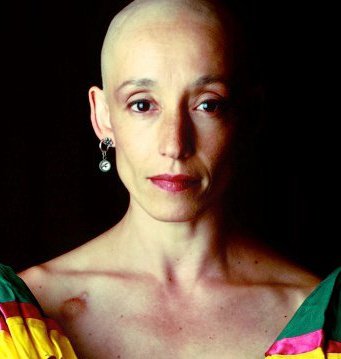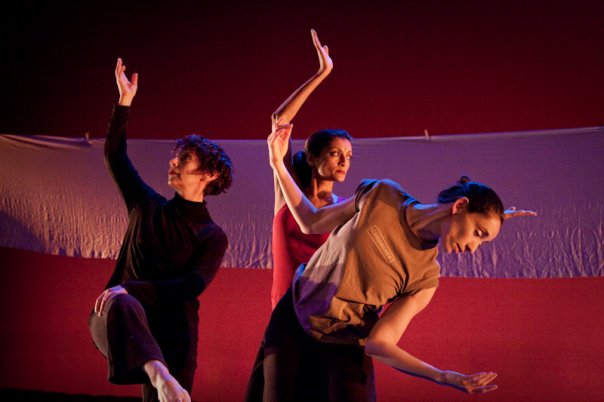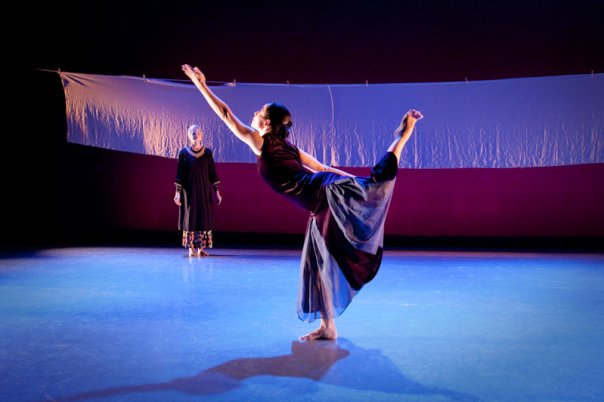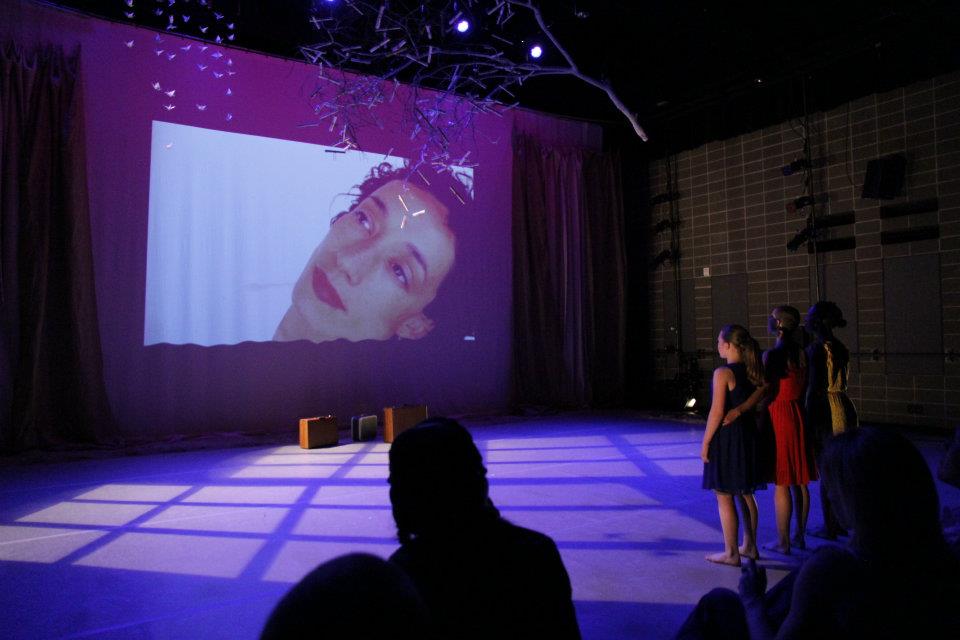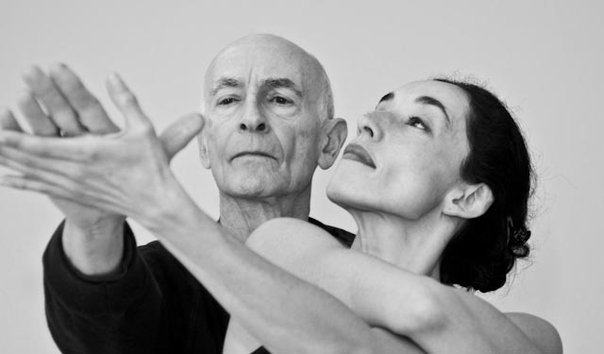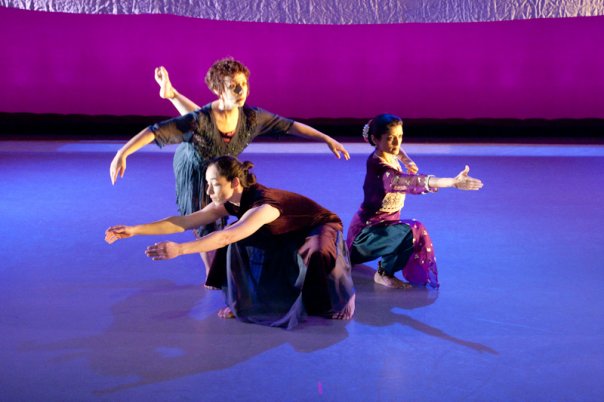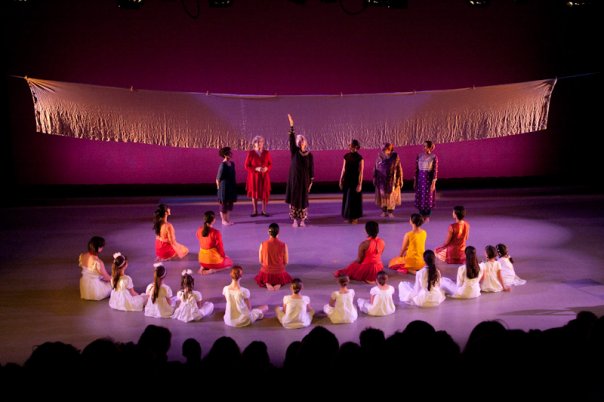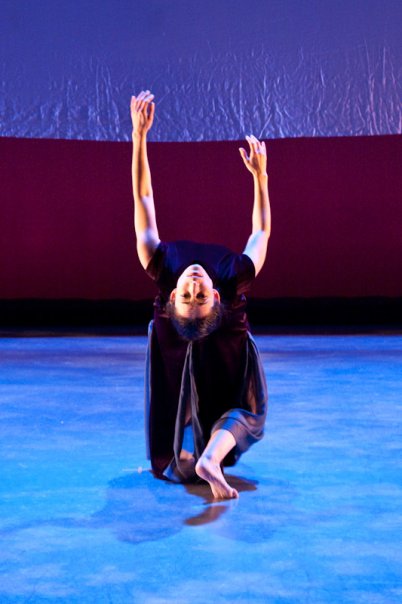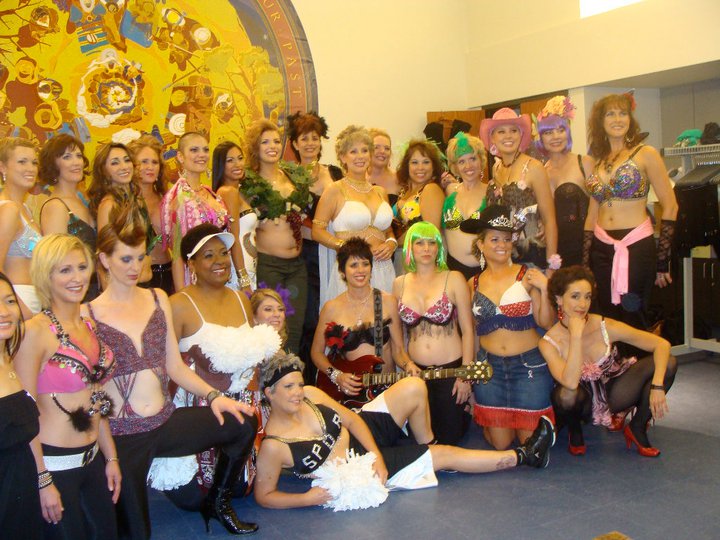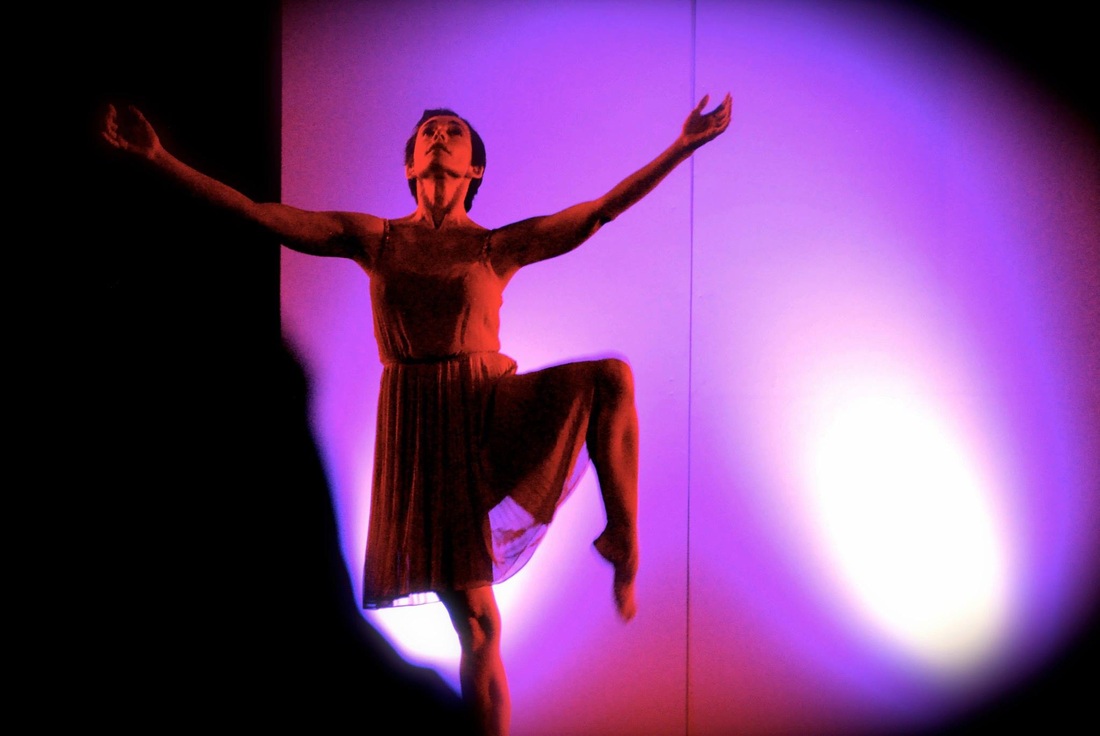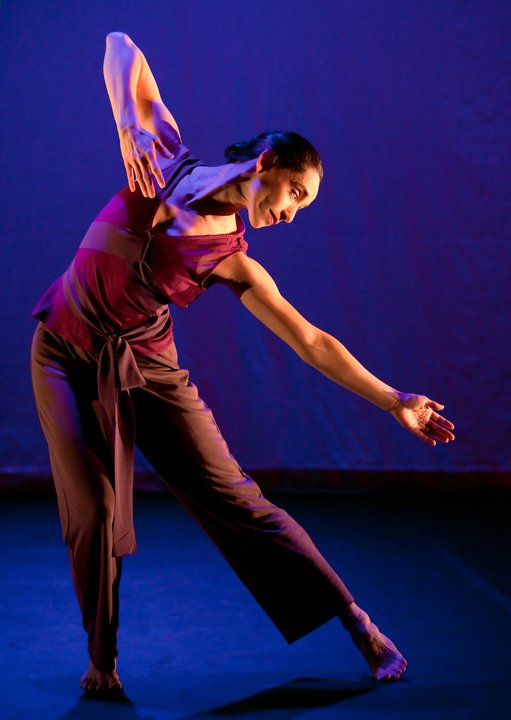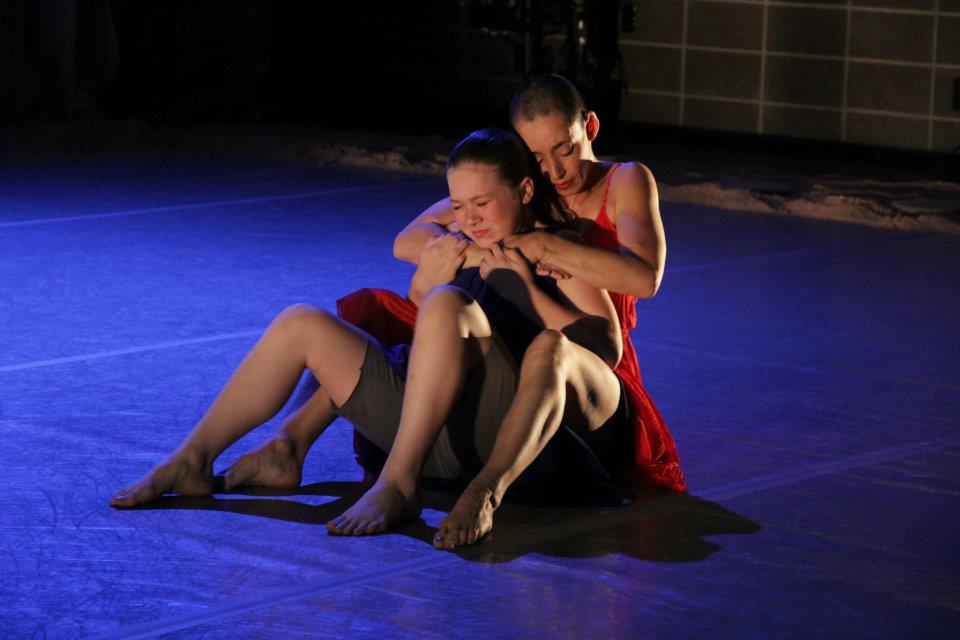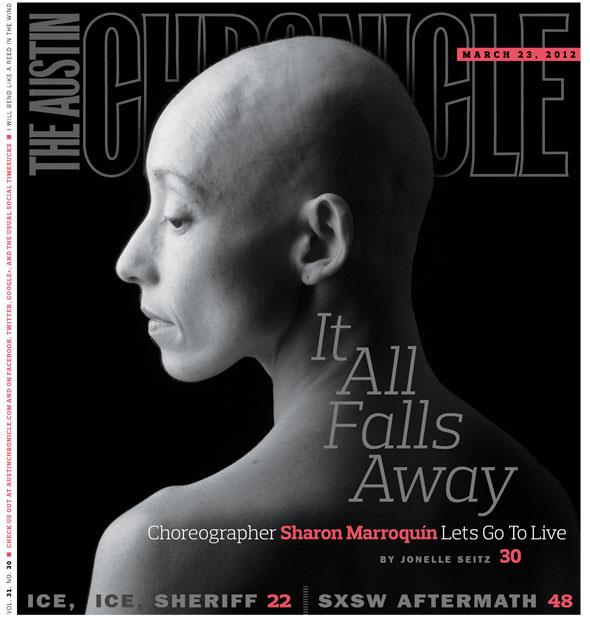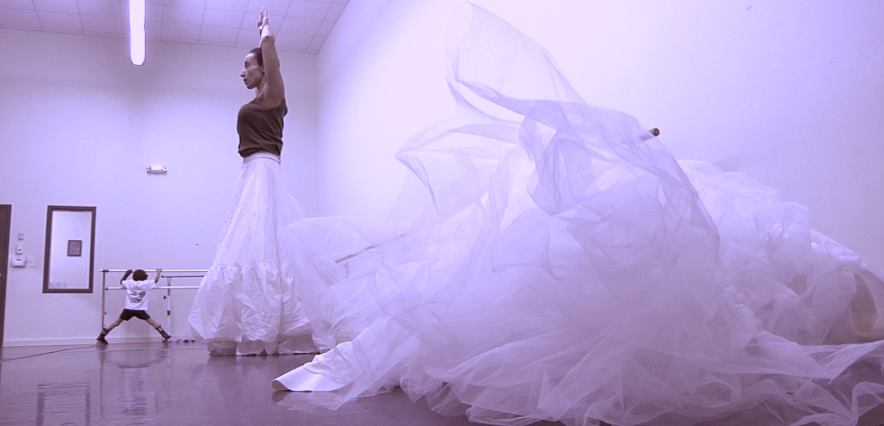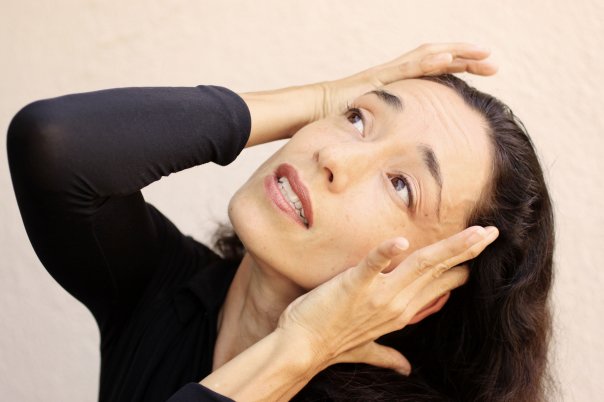Sharon Marroquín has been listed several times as one of the top ten dance events of the year by the Austin Chronicle, and is a three-time winner of the Austin Critics Table Award for Outstanding Choreographer. Born and raised in Mexico City, Sharon has performed with many companies in Austin, TX. She has created pieces for Big Range Austin Dance Festival, Forklift Danceworks, Ballet East, and Dance Carousel. Sharon teaches dance at Tapestry Dance Company, and is a bilingual elementary school teacher.
Copa: Sharon, where are you from?
Sharon: I was born in Mexico City, and have been living in Austin, Texas for 14 years.
Sharon: I was born in Mexico City, and have been living in Austin, Texas for 14 years.
Copa: What influenced you into the world of Modern Dance?
Sharon: What influenced you into the magical world of modern dance? I began ballet when I was 5 years old. My first teacher was my aunt, who was a dancer herself. I went to my first modern dance concert as a young teenager and I sat in the audience mesmerized by the unitard-clad dancers who moved in ways I had never imagined possible. At that moment I decided THAT is what I wanted to do. Several years later I threw my pointe shoes in the trash, and embarked upon the journey of discovering modern dance.
Sharon: What influenced you into the magical world of modern dance? I began ballet when I was 5 years old. My first teacher was my aunt, who was a dancer herself. I went to my first modern dance concert as a young teenager and I sat in the audience mesmerized by the unitard-clad dancers who moved in ways I had never imagined possible. At that moment I decided THAT is what I wanted to do. Several years later I threw my pointe shoes in the trash, and embarked upon the journey of discovering modern dance.
Copa: What sort of skill must one possess to become a great choreographer?
Sharon: A choreographer knows that making dances, like anything else, requires practice. There are many skills to learn and refine, and much trial and error. However, in my opinion, the most interesting choreographers are those who blend a sharp intelligence with passion. They are able to insightfully question our world, and at the same time wordlessly embody our shared human experience.
Sharon: A choreographer knows that making dances, like anything else, requires practice. There are many skills to learn and refine, and much trial and error. However, in my opinion, the most interesting choreographers are those who blend a sharp intelligence with passion. They are able to insightfully question our world, and at the same time wordlessly embody our shared human experience.
Copa: How much does your experience with cancer relate to any of your performances and to what degree has your recovery affected your dedication to dance?
Sharon: I have always made dances about subjects that are extremely personal. The Materiality of Impermanence is the culmination, so to speak, of this approach: there is nothing more personal that cancer. Seeing death take up residence beside you changes the way you think, the way you see the world, and necessarily, the way you create. One never "recovers" from cancer, because it is always a shadow that lurks close by. I have come to accept this uncertainty, and perhaps paradoxically, it gives me great freedom. I dance with renewed joy and a sense of wonder at the preciousness of life.
Sharon: I have always made dances about subjects that are extremely personal. The Materiality of Impermanence is the culmination, so to speak, of this approach: there is nothing more personal that cancer. Seeing death take up residence beside you changes the way you think, the way you see the world, and necessarily, the way you create. One never "recovers" from cancer, because it is always a shadow that lurks close by. I have come to accept this uncertainty, and perhaps paradoxically, it gives me great freedom. I dance with renewed joy and a sense of wonder at the preciousness of life.
Copa: How would you describe your dance company's performances?
Sharon: "The Materiality of Impermanence" is an intimate reflection on my experience with breast cancer. Using contemporary movement language, the piece is structured as a series of solos, duets, trios, and group sections. It includes eleven performers, aerial dance, music, text and video design. Non-dancer members of the local survivor community participate in a section which honors the memory of loved ones lost to cancer. The following are some of the images:
"The sound of shattering glass penetrates the darkness. Lights fade up on a female form jailed within a small space: reaching, unfurling. A young girl sleeps next to a mother, peeling away every now and then to dance. Three women peer into mirrors, grieving for what is about to happen to their bodies and their spirits. A man’s voice dispassionately explains Heisenberg’s uncertainty principle. Brightly colored bras are strung together, forming a clothesline that entangles and connects a group of laughing dancers. A lone figure with a suitcase embarks upon a voyage to an unknown destination".
Sharon: "The Materiality of Impermanence" is an intimate reflection on my experience with breast cancer. Using contemporary movement language, the piece is structured as a series of solos, duets, trios, and group sections. It includes eleven performers, aerial dance, music, text and video design. Non-dancer members of the local survivor community participate in a section which honors the memory of loved ones lost to cancer. The following are some of the images:
"The sound of shattering glass penetrates the darkness. Lights fade up on a female form jailed within a small space: reaching, unfurling. A young girl sleeps next to a mother, peeling away every now and then to dance. Three women peer into mirrors, grieving for what is about to happen to their bodies and their spirits. A man’s voice dispassionately explains Heisenberg’s uncertainty principle. Brightly colored bras are strung together, forming a clothesline that entangles and connects a group of laughing dancers. A lone figure with a suitcase embarks upon a voyage to an unknown destination".
Copa: How do you balance your time as a wonderful mother and work with the dance company, it appears that you do a marvelous job on both.
Sharon: Balancing a full time job as a teacher, being a mother, and remaining active in the creative realm is challenging. When I am frustrated and stressed, I attempt to turn inward. In that deep place, I (sometimes!) am able to find silence and equanimity.
Sharon: Balancing a full time job as a teacher, being a mother, and remaining active in the creative realm is challenging. When I am frustrated and stressed, I attempt to turn inward. In that deep place, I (sometimes!) am able to find silence and equanimity.
Copa: When will you return to the Washington, DC area for another exciting performance with your dance company?
Sharon: I will return to DC in July of this year to hold another workshop for people living with cancer. I believe in the healing power of movement, and the extraordinary ability of the soul and body to restore themselves through the arts.
Sharon: I will return to DC in July of this year to hold another workshop for people living with cancer. I believe in the healing power of movement, and the extraordinary ability of the soul and body to restore themselves through the arts.
Copa: How many performances and what type of performances should we expect this time around from you and your dancers?
Sharon: The Materiality of Impermanence will be performed in Washington, DC in July 2015. The presenting non-profit organization, 'We Will Survive Cancer', is currently raising funds to make this possible.
Sharon: The Materiality of Impermanence will be performed in Washington, DC in July 2015. The presenting non-profit organization, 'We Will Survive Cancer', is currently raising funds to make this possible.
Copa: Will you be using any local dancers when you return?
Sharon: I will recruit community members whose lives have been touched by cancer to participate in a short section onstage. This part of the production is an elegy to those we have lost to this dreaded disease.
Sharon: I will recruit community members whose lives have been touched by cancer to participate in a short section onstage. This part of the production is an elegy to those we have lost to this dreaded disease.
Copa: What do you have planned for the future of your dance company that you can share with our readers?
Sharon: I will continue to create dances, and to live my life as fully as I can. Right now I am pondering my next production---I want to use a contemporary version of Vivaldi's Four Seasons to make a dance about the cycles of life and death.
For more information:
http://thematerialityofimpermanence.wordpress.com/film/
~Copa
Sharon: I will continue to create dances, and to live my life as fully as I can. Right now I am pondering my next production---I want to use a contemporary version of Vivaldi's Four Seasons to make a dance about the cycles of life and death.
For more information:
http://thematerialityofimpermanence.wordpress.com/film/
~Copa

